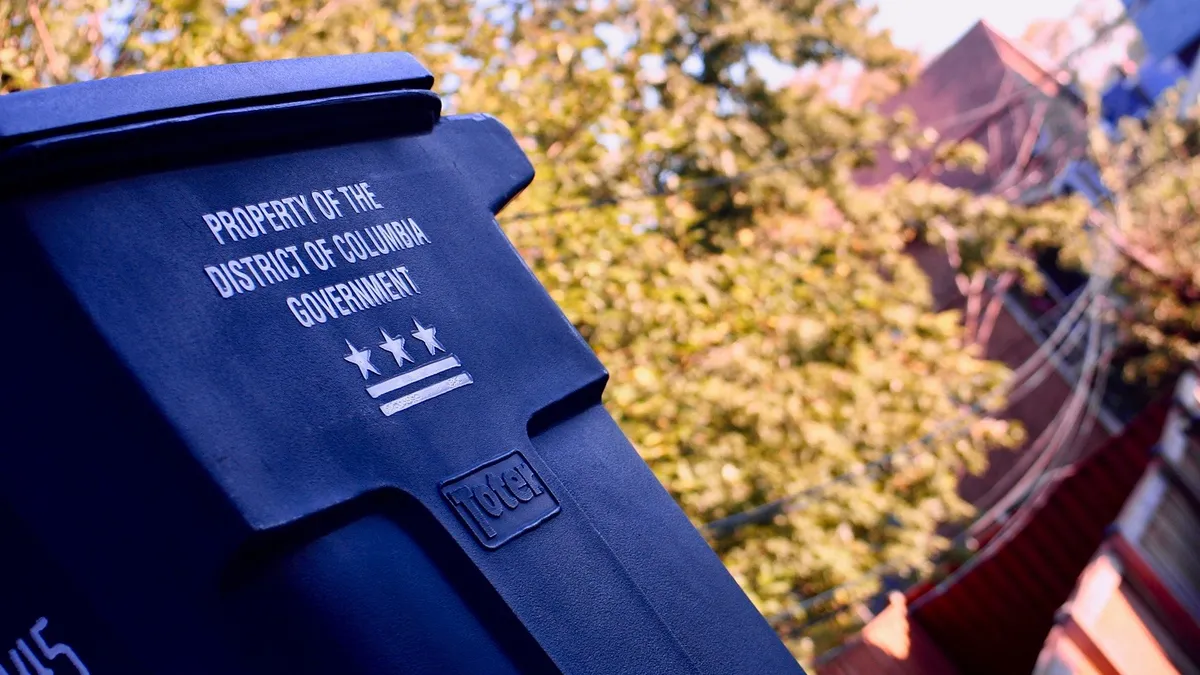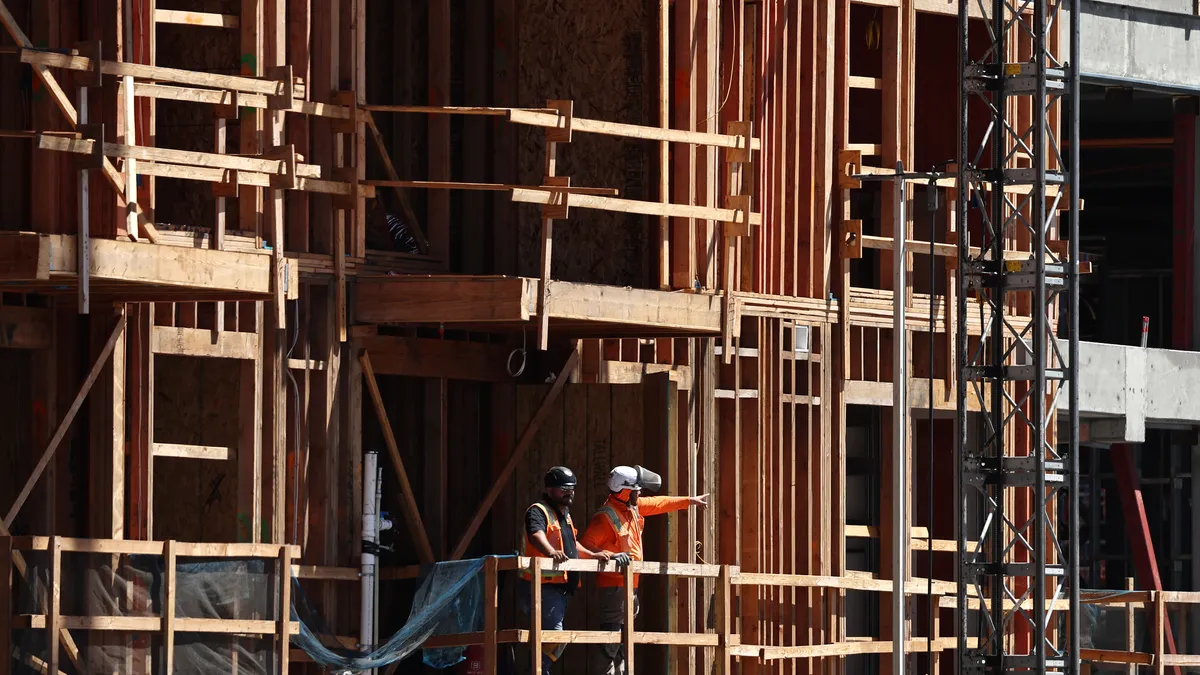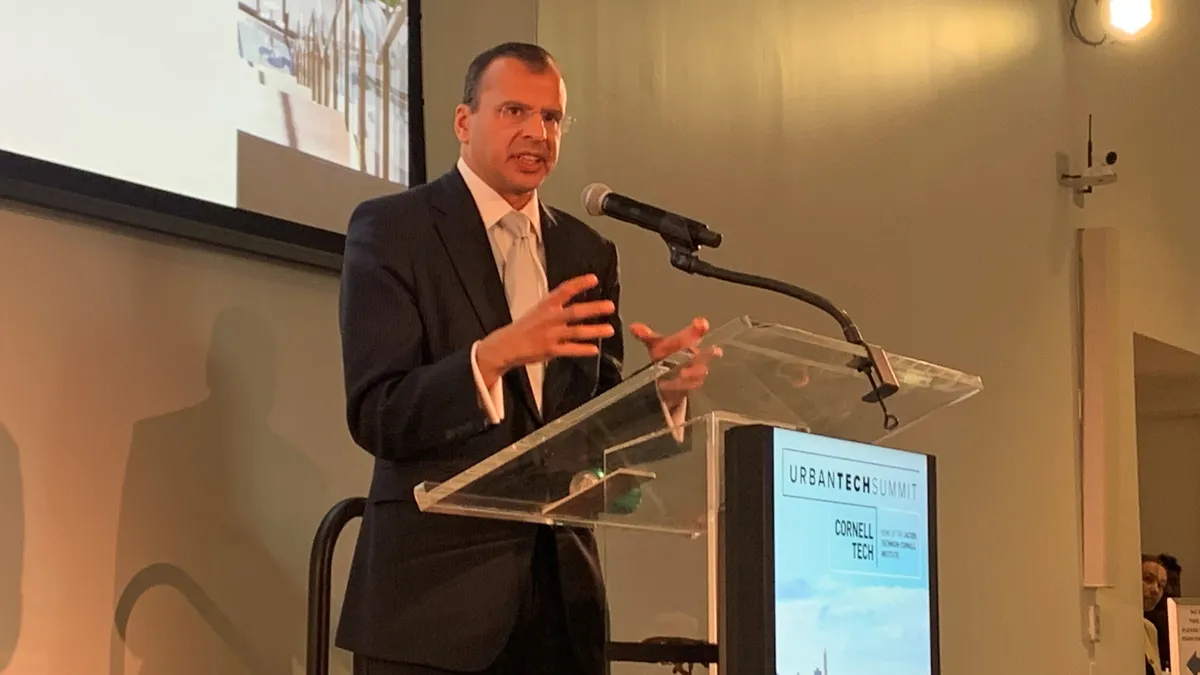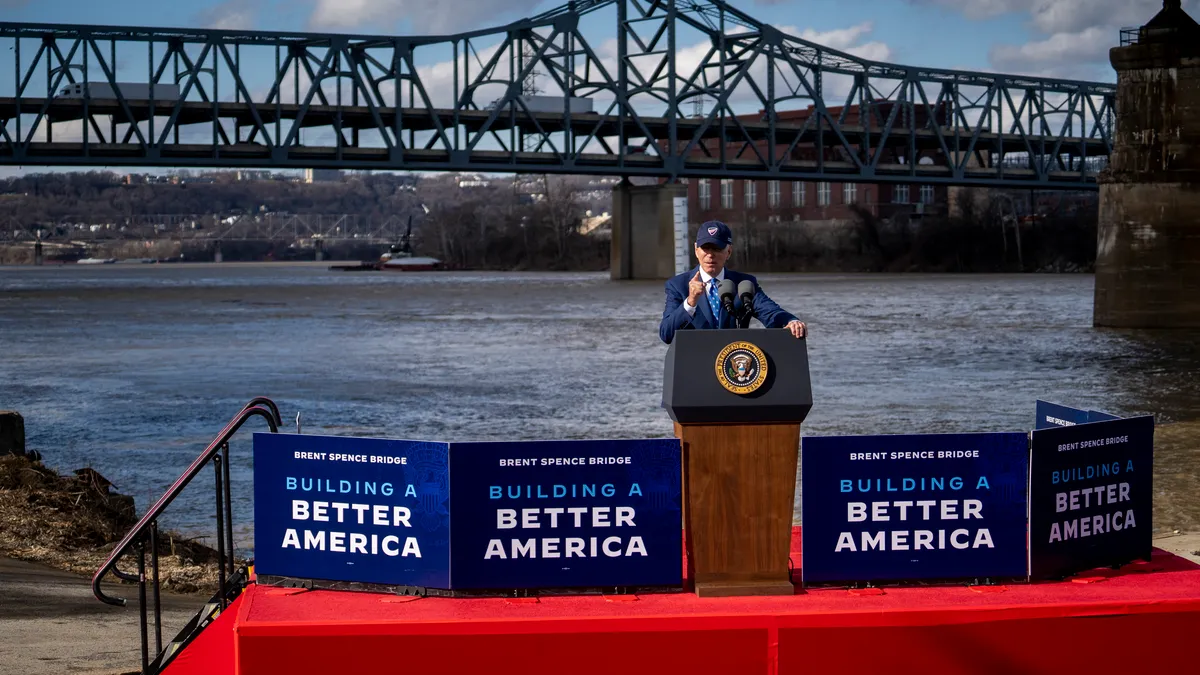A Washington, DC, zero waste bill introduced in late 2019 to ramp up organics, recycling and extended producer responsibility (EPR) programs is now law, although much of the omnibus is yet to receive necessary funding for implementation.
The bill, which passed into law last month after undergoing a markup in November, officially puts the nation's capital on a path to cut down on the ubiquity of disposable utensils and other foodservice ware, enact more stringent food waste diversion requirements for businesses and schools, become the first in the country to have a comprehensive EPR program for rechargeable and primary batteries and more.
But as it stands, even though the Zero Waste Omnibus Amendment Act took effect March 16, funds are not sufficient to implement the bill as written. It is set to cost roughly $5 million in fiscal year 2021 and $16.4 million over four years across four agencies, according to a fiscal impact system released in November. The bill text outlines sections that cannot be implemented without funding, which include portions addressing handling of commercial food waste, organics processing, and school-based efforts to curb food waste and food packaging waste.
DC Department of Public Works (DC DPW) staff noted that many key tenets of the bill still have start dates over a year away. "We are doing some foundational work so that we're poised to begin or implement the portions of the legislation once we've received funding," said Christine Davis, who was appointed interim director of DC DPW in January.
For example, the department could theoretically move faster on glass recycling-related initiatives in the bill if funded because they are written to have an earlier start date and more preparatory work has been done, said Charlotte Dreizen, a program analyst in the Office of Waste Diversion.
As with most things the past year, the coronavirus pandemic did change some initial plans.
There have been budget constraints throughout the District during the pandemic but, "as we begin to recover from that, I'm certain that the mayor and the council will determine appropriate funding and provide the funding," Davis said. A budget hearing is scheduled for April 29 in the next fiscal year, which begins Oct. 1.
Washington, DC is chasing a goal of 80% waste diversion from landfills and incinerators by 2032. In setting the bill in motion about a year and a half ago, Councilmember Mary Cheh said the legislation would bring DC in line with the likes of New York, Seattle and San Francisco in terms of zero waste programs.
| Date active | Certain key actions |
|---|---|
| July 1, 2021 | Single-use foodservice ware: Third-party food ordering platforms to enable customers to affirmatively request accessory disposable foodservice ware. |
| January 1, 2022 | Glass: Mayor establishes collection point in DC for waste collectors to bring source-separated glass for transfer to a glass recycling facility. Certain multi-family dwellings, commercial buildings, businesses and nonprofits required to submit a source separation plan. Batteries: A battery stewardship organization shall submit a proposed battery stewardship plan. Battery producers shall only dispose of batteries through recycling programs or other mayor-approved methods. Single-use foodservice ware: Food service entities and those servicing takeout or delivery orders to only provide accessory disposable foodservice ware upon customer request or at a self-serve station. |
| July 1, 2022 | Pay-as-you-throw: Mayor to conduct and submit a feasibility/economic outcomes study on implementing a "variable rate pricing model" for public collection properties. |
| January 1, 2023 | Organics: Commercial food waste requirements to take effect for retail food stores of at least 10,000 sq. ft. and colleges/universities with at least 2,000 residential students. Mayor to submit comprehensive managements plan for commercial and residential organics to council. Recycling: Mayor to submit comprehensive plan outlining how to provide recycling infrastructure in public spaces. Batteries: Consumers shall only dispose of batteries through recycling programs or other mayor-approved methods. |
| January 1, 2024 | Organics: Commercial food waste requirements supposed to take effect for other retail food stores and chains, arenas and stadiums with capacity exceeding 15,000 seats, certain hospitals and nursing homes, and smaller colleges/universities. Glass: Mayor can require certain private collection properties to separate and store all recyclable glass containers and arrange for recycling. |
The November committee report acknowledged the pandemic "brought increased urgency" to zero waste efforts that relate to public health and equity. But the report also notes COVID-19’s "devastating impact" on residents and small businesses, especially in the hospitality industry, "recognizing that many of these businesses are unable to take on significant new burdens at this time."
For instance, large restaurants and hotels, which had been subject to commercial food waste generator requirements sooner, are now among those that now cannot be added until Jan. 1, 2024, at the earliest, according to a November report from the DC Council's Committee on Transportation and the Environment.
Cheh said in a statement she’s "particularly interested in seeing funding provided for those provisions that are directly connected to COVID-19 relief and the economic recovery efforts."
In order to "be both sensitive to the economic hardship faced by the hospitality industry and also move us forward in meeting the District's ambitious sustainability goals," Cheh noted that the law now encourages voluntary adoption of reusables by restaurants and bars — which have in the last year been more dependent than usual on single-use takeout ware — and requires that disposables only be provided upon request.
Additionally, Cheh said she wants to prioritize "the bill’s strong enhancements to the District's donation and reuse programs, which directly divert food and essential items away from the waste stream," as the needs of certain residents "have been greatly exacerbated by the pandemic, making these types of donation programs all the more essential."
On the organics side, while funding for the scale-up in citywide requirements remains uncertain, individual residents' interest in composting may have grown in 2020. Although foot traffic to city farmers markets was down during the pandemic year, the number of people participating in compost dropoff at farmers markets was up, with volume of food scraps collected and finished compost made from those scraps both increased, said Jeremy Brosowsky, CEO of Agricity, the company behind Compost Cab, which helps service DC’s farmers market-based food waste collection program.
"The easier and cheaper you make it for people, which is something that a city is uniquely positioned to help do, the more likely you are to get that behavioral change that you're looking for," said Brosowky, who frames composting as "the gateway drug to sustainability." Brosowsky is also optimistic that restaurants will want to use the great disruption as an opportunity to reopen more sustainably and with potential new practices on food waste.
On the EPR front, while DC had existing EPR programs for paint and electronics, the zero waste law’s passage made DC’s legislation the first in the U.S. to have an "all-battery" producer responsibility law covering both single-use and rechargeable consumer batteries, according to the Product Stewardship Institute (PSI), which counted 13 states as preceding DC with less comprehensive battery EPR programs. DC's law also accounts for battery-containing items in which the battery cannot be removed at time of disposal, noted PSI CEO Scott Cassel.
Some original parts of the bill, including one calling for an EPR program for sharps, were dropped entirely in the final version. But implementation of this bill is "just the beginning," Cheh said, noting she will pursue a broader EPR program covering pharmaceutical and sharps waste through additional legislation.





















